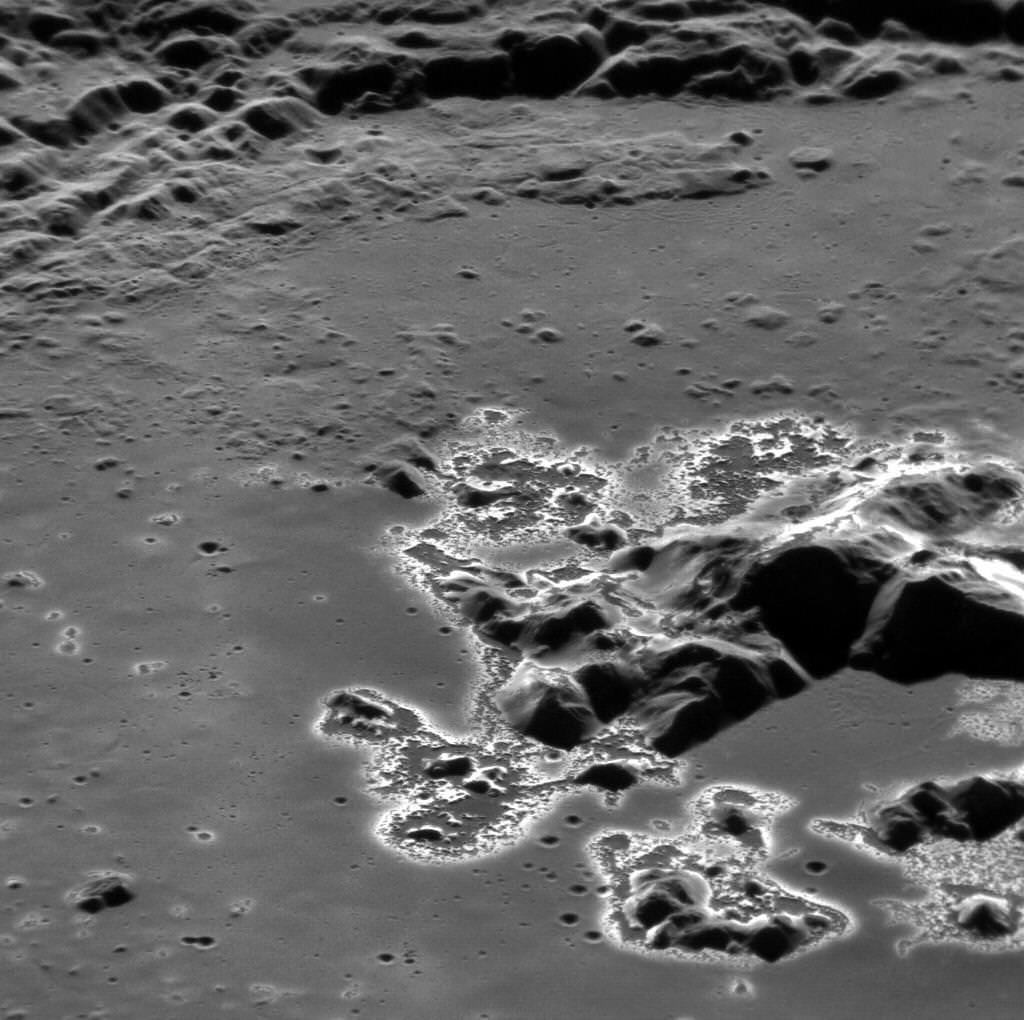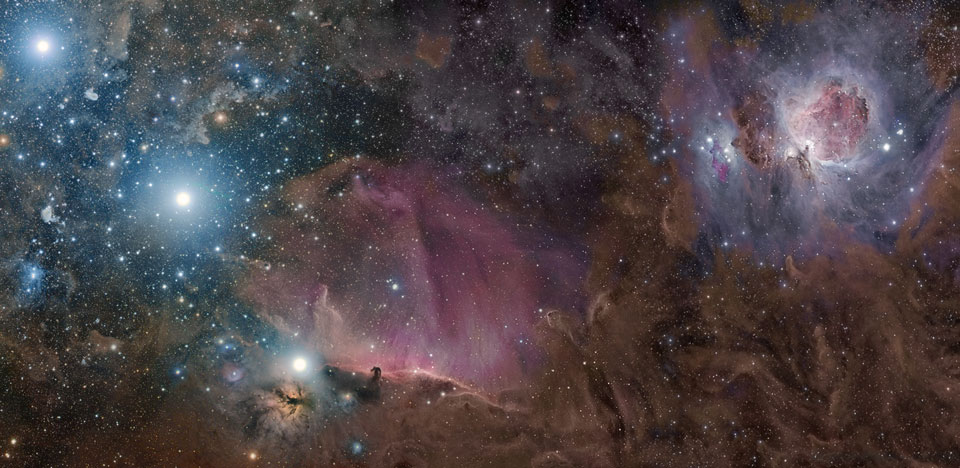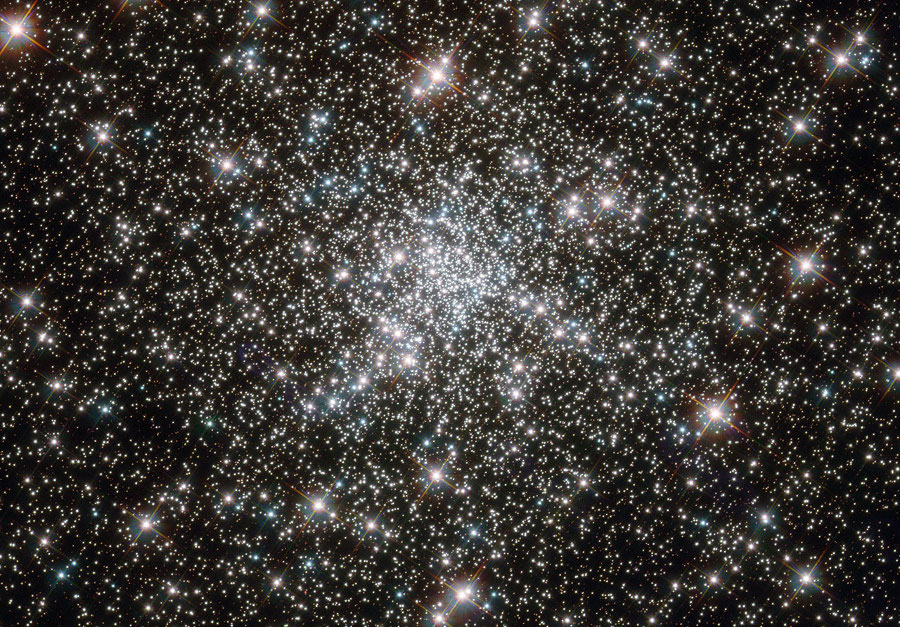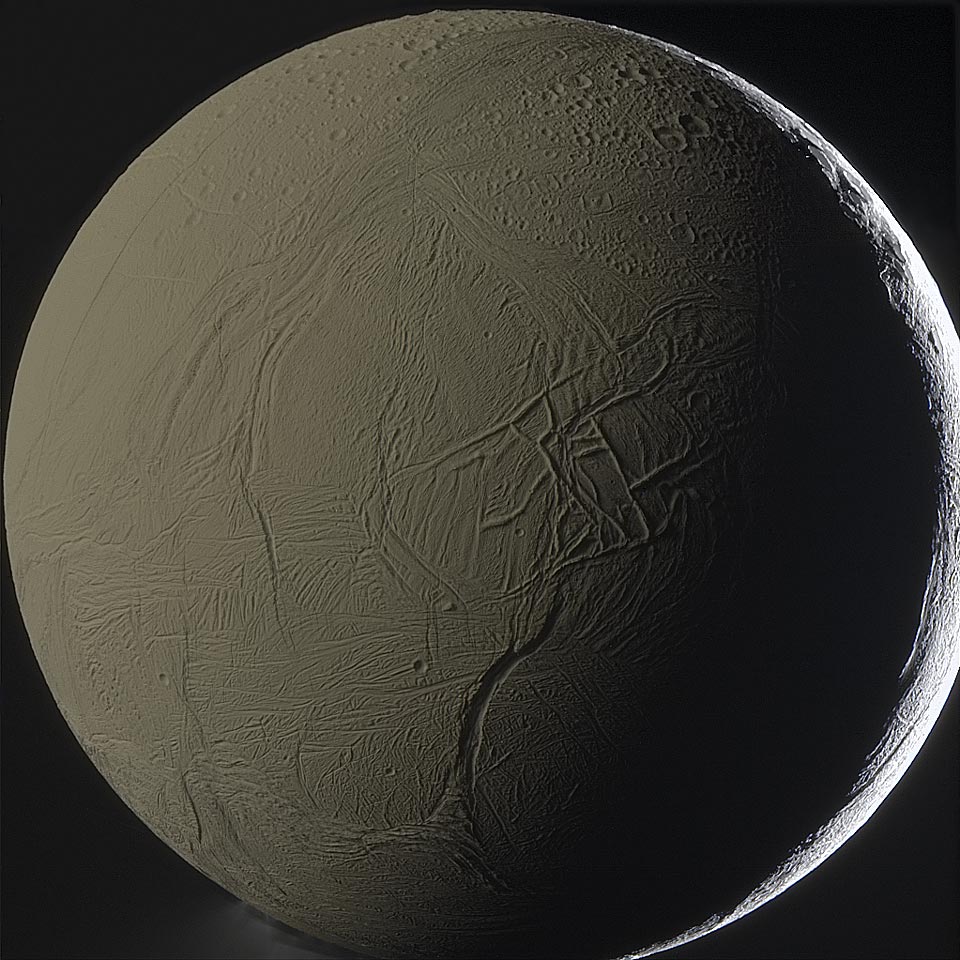 |
| Titan and Prometheus are dwarfed by giant Saturn (NASA/JPL/SSI) |
agora, sobre as atribulações de um independente de esquerda nestes tempos da III República ...
29 de fevereiro de 2012
Saturno e Titã
Moons Large and Small Universe Today
28 de fevereiro de 2012
Em síntese, estamos onde estamos porque...
... como explicam os números do BP da semana passada, na última quinzena de anos, [...] o crédito foi esmagadoramente para aquilo que que se chama de sectores não transacionáveis [...] quase 3,5 euros em cada 5 euros de crédito foram concedidos a construção, imobiliário, habitação, obras públicas; só 6% (3 centimos daqueles 5 euros) foram o sector transformador... Porquê? Ora, porque os sectores protegidos, em conjunto com os Governos e bancos, seguiram o que tinha menos risco...para si. Naquela altura, isso gerou lucros e empregos. Mas não transformou a economia, nem sedimentou a sua sustentabilidade e a do emprego.
Não é possível ter uma recuperação económica assente perpetuamente num desiquilíbrio externo alimentado pelo défice orçamental. E economias pequenas e abertas não sustêm o crescimento da despesa interna se não forem estruturalmente sólidas.[...]
É simples. É quase como ensinar economia às crianças. Tirei isto (o que está a itálico) do editorial do Jornal de Negócios assinado pelo director Pedro Santos Guerreiro, denominado Despojos da Krugmania. Comprei o jornal para ler a entrevista de Krugman (ainda não a li). Haveria muito a dizer sobre esse editorial, mas fica para outra oportunidade.
26 de fevereiro de 2012
Declaração importante como o caraças: eu escrevo de acordo com o novo acordo ortográfico....
O artigo do Expresso, que transcrevo abaixo, vem confirmar a desconfiança que tenho sobre a relevância, ou o enviesamento do assunto.O facto de não gostar da pinta do novo presidente do CCB - eu sei, eu sei da qualidade intelectual do senhor, dos poemas, das traduções... -, e do modo que substituiu o anterior, não têm nada a ver com esta minha posição. Não percebo nada do assunto, mas fui influenciado de modo determinante por um livro velho que o meu pai tinha na sua biblioteca - publicado por volta do início da segunda década do século XX - onde se discutia a polémica do, à altura, novo acordo ortográfico (como relato na outra nota). A pepineira do tratamento dado à matéria, que tem paralelo com o que se passa agora, vacinou-me para sempre sobre a importância a dar à questão.
Na linha das declarações de muita gente, venho frisar que eu, a contrário, sigo o novo acordo ortográfico; e que se por acaso, naquilo que escrevo aparecer a grafia anterior é porque estou a cometer um erro de ortografia, ou porque estou a confundir a grafia barsileira com a portuguesa definidas pelo novo acordo: exemplo, facto continua a escrever-se facto e outras coisas quejandas...
Dedicado a Vasco Graça Moura e a todos os opositores do Acordo Ortográfico
A minha adesão pessoal ao Acordo Ortográfico (AO) tem a ver simultaneamente com confiança e humildade. Confio na sabedoria de quem o fez (não na sua infalibilidade) e sou suficientemente humilde para reconhecer que muitos aspetos que dizem respeito à etimologia e à fonética, tais como outros menos relevantes para este caso, me escapam. Além da confiança e respeito por nomes como Lindley Cintra ou António Houaiss, de que não vejo muita gente comungar, mas antes desprezar, dediquei eu próprio algum tempo ao assunto. E, uma vez que faço da escrita a minha profissão há mais de 30 anos, penso ter algo a dizer.
Rodrigues Lapa, que foi um mestre da língua portuguesa, filólogo distinto, sustinha que as mudanças de ortografia eram sempre violentas. Esta asserção é hoje inteiramente justificada pela quantidade de pessoas que apenas se opõem ao Acordo 'porque sim' - sem quaisquer argumentos.
A verdade é que ninguém se conforma, depois de ter sido obrigado a pôr um p em ótimo, agora lhe dizerem que afinal esse p (no qual nunca encontrou utilidade) não faz falta. Há quem argumente com esse pai tirano, o latim, e com a etimologia da palavra optimus. A palavra sem o p perderá a identidade. Alguns enxofram-se e dizem que lhes matamos o português! Mas qual português, Santo Deus (ou melhor diria Sancto Deus?). O português do assucar ou do açúcar? O de Viseu ou Vizeu?
22 de fevereiro de 2012
Anomalias
Global Ice Loss from 2003-2010 Could “Cover the Entire United States in One and Half Feet of Water”
 |
| Changes in ice thickness (in centimeters per year) during 2003-2010 as measured by NASA’s Gravity Recovery and Climate Experiment (GRACE) satellites, averaged over each of the world’s ice caps and glacier systems outside of Greenland and Antarctica. Image credit: NASA/JPL-Caltech/University of Colorado |
21 de fevereiro de 2012
O combate político do nosso tempo é este, mas anda tudo distraído, mesmo aqueles a quem o que se segue parece confirmar as suas percepções (estou a ser claro, não estou?)
Shocking, fascinating, entirely unsurprising: the leaked documents, if authentic, confirm what we suspected but could not prove. The Heartland Institute, which has helped lead the war against climate science in the United States, is funded among others by tobacco firms, fossil fuel companies and one of the billionaire Koch brothers.It appears to have followed the script written by a consultant to the Republican party, Frank Luntz, in 2002. "Should the public come to believe that the scientific issues are settled, their views about global warming will change accordingly. Therefore, you need to continue to make the lack of scientific certainty a primary issue in the debate."Luntz's technique was pioneered by the tobacco companies and the creationists: teach the controversy. In other words, insist that the question of whether cigarettes cause lung cancer, natural selection drives evolution, or burning fossil fuels causes climate change, is still wide open, and that both sides of the "controversy" should be taught in schools and thrashed out in the media.The leaked documents appear to show that, courtesy of its multimillionaire donors, the institute has commissioned a global warming curriculum for schools which teaches that "whether humans are changing the climate is a major scientific controversy" and "whether CO2 is a pollutant is controversial".
19 de fevereiro de 2012
Retirado, sem comentário, de uma nota sobre a situação actual da economia checa ...
Quick Reality Czech | A Fistful Of Euros: [....] Others explain the phenomenon culturally – the Czech’s are a nation of savers, unlike the Estonians whose reckless spending lead them into a housing boom/bust (do note the irony, please).
[....]Sylvie Pekarova, a 33-year-old pharmaceutical researcher in Prague, has no debt. She doesn’t even own a credit card.
Consumers like Pekarova have helped the Czech Republic avoid the fate of the euro region, which is grappling with a debt crisis now into its third year. With private borrowing at half the euro region’s average, the country now boasts interest rates that are lower than 10 of the currency-bloc’s 17 members. That’s helping the government’s drive to sell benchmark Eurobonds, which started this week.
“It’s this feeling that if something goes wrong, you don’t want to be stuck with debts you don’t know how to pay back,” Pekarova, who lives in a rented apartment in central Prague, said in an interview. “Borrowing money for things like going on a holiday doesn’t make sense.”
Mercúrio
More “Hollowed Ground” on Mercury Universe Today
Bright Peaks, Dark Shadows Universe Today
Bright Peaks, Dark Shadows Universe Today
 |
| MESSENGER's latest NAC image of curious "hollows" surrounding a crater peak |
 |
| MESSENGER image of Mercury's Amaral crater |
18 de fevereiro de 2012
Santorum é um dos candidatos à presidência dos EUA, e têm hipóteses sérias de ser nomeado o candidato do partido republicano - vejam o que diz, e como o diz!!
Rick Santorum Declares Jihad on Atheists, Agnostics, Presbyterians, Buddhists, Muslims, Wiccans, Members of the Dutch Reformed Church, Congregationalists, Asatru, Mithraists, and Lutherans!
Santorum: Satan is Systematically Destroying America: Rick Santorum traveled to Ave Maria University in Florida to deliver an address…. Santorum told the students at Ave Maria how lucky they were to be living in a time when God's Army is more needed than ever because all of the major institutions in society were under attack by Satan….Santorum began his remarks by explaining to the students in attendance how every institution in America has been destroyed by Satan; from academia to politics with even the church having fallen under His sway - not the Catholic church, of course, but "mainline Protestantism" which is in such "shambles" that it is not even Christian any longer:
This is not a political war at all. This is not a cultural war. This is a spiritual war. And the Father of Lies has his sights on what you would think the Father of Lies would have his sights on: a good, decent, powerful, influential country - the United States of America. If you were Satan, who would you attack in this day and age? There is no one else to go after other than the United States and that has been the case now for almost two hundred years, once America's preeminence was sown by our great Founding Fathers…. The place where he was, in my mind, the most successful and first successful was in academia. He understood pride of smart people. He attacked them at their weakest, that they were, in fact, smarter than everybody else and could come up with something new and different. Pursue new truths, deny the existence of truth, play with it because they're smart. And so academia, a long time ago, fell…. [O]once the colleges fell and those who were being education in our institutions, the next was the church. Now you’d say, ‘wait, the Catholic Church’? No. We all know that this country was founded on a Judeo-Christian ethic but the Judeo-Christian ethic was a Protestant Judeo-Christian ethic, sure the Catholics had some influence, but this was a Protestant country and the Protestant ethic, mainstream, mainline Protestantism, and of course we look at the shape of mainline Protestantism in this country and it is in shambles, it is gone from the world of Christianity….
17 de fevereiro de 2012
Eta Carinae: ecos da luz da erupção
15 de fevereiro de 2012
Anomalias
Some brutal droughts are raging around the world. The one in Texas has, naturally, been receiving most of the attention in this country (see Warming-Enhanced Texas Drought Is Once in “500 or 1,000 Years … Basically Off the Charts,” Says State Climatologist). Later in the week I’ll blog about the ones hitting Mexico and South America. But Britain is clearly also being hit by one for the record books, as the UK Guardian reports: [continua]
Astronomy Picture of the Day, 2012 February 15 - Reflexões
 |
| Merope's Reflection Nebula Image Credit & Copyright: Leonardo Orazi |
Explanation: Reflection nebulas reflect light from a nearby star. Many small carbon grains in the nebula reflect the light. The blue color typical of reflection nebula is caused by blue light being more efficiently scattered by the carbon dust than red light. The brightness of the nebula is determined by the size and density of the reflecting grains, and by the color and brightness of the neighboring star(s). NGC 1435, pictured above, surrounds Merope (23 Tau), one of the brightest stars in the Pleiades (M45). The Pleiades nebulosity is caused by a chance encounter between an open cluster of stars and a dusty molecular cloud.
12 de fevereiro de 2012
Astronomy Picture of the Day, 2012 February 12 - Orion, gás, poeira e estrelas
 |
| Orion in Gas, Dust, and Stars Image Credit & Copyright: Rogelio Bernal Andreo (Deep Sky Colors) |
Explanation: The constellation of Orion holds much more than three stars in a row. A deep exposure shows everything from dark nebula to star clusters, all embedded in an extended patch of gaseous wisps in the greater Orion Molecular Cloud Complex. The brightest three stars on the far left are indeed the famous three stars that make up the belt of Orion. Just below Alnitak, the lowest of the three belt stars, is the Flame Nebula, glowing with excited hydrogen gas and immersed in filaments of dark brown dust. Below the frame center and just to the right of Alnitak lies the Horsehead Nebula, a dark indentation of dense dust that has perhaps the most recognized nebular shapes on the sky. On the upper right lies M42, the Orion Nebula, an energetic caldron of tumultuous gas, visible to the unaided eye, that is giving birth to a new open cluster of stars. Immediately to the left of M42 is a prominent bluish reflection nebula sometimes called the Running Man that houses many bright blue stars. The above image, a digitally stitched composite taken over several nights, covers an area with objects that are roughly 1,500 light years away and spans about 75 light years.
11 de fevereiro de 2012
Mark Twain: "A história não se repete, mas rima por vezes"
A validade do epigrama de Mark Twain é confirmada, mais uma vez, e agora, pela relevância do que U.S.Grant dizia sobre as causas da Guerra Civil Norte-Americana para a compreensão dos EUA dos nossos dias:
Quote of the Day: February 9, 2012
"Demagogues who were too old to enter the army if there should be a war, others who entertained so high an opinion of their own ability that they did not believe they could be spared from the direction of the affairs of state in such an event, declaimed vehemently and unceasingly against the North; against its aggressions upon the South; its interference with Southern rights, etc., etc.
"They denounced the Northerners as cowards, poltroons, negro-worshippers; claimed that one Southern man was equal to five Northern men in battle; that if the South would stand up for its rights the North would back down. Mr. Jefferson Davis said in a speech, delivered at La Grange, Mississippi, before the secession of that State, that he would agree to drink all the blood spilled south of Mason and Dixon's line if there should be a war.
"The young men who would have the fighting to do in case of war, believed all these statements, both in regard to the aggressiveness of the North and its cowardice. They, too, cried out for a separation from such people. The great bulk of the legal voters of the South were men who owned no slaves; their homes were generally in the hills and poor country; their facilities for educating their children, even up to the point of reading and writing, were very limited; their interest in the contest was very meager--what there was, if they had been capable of seeing it, was with the North; they too needed emancipation. Under the old regime they were looked down upon by those who controlled all the affairs in the interest of slave-owners, as poor white trash who were allowed the ballot so long as they cast it according to direction."
--U.S. Grant, Personal Memoirs (via Ta-Nehisi Coates)
"They denounced the Northerners as cowards, poltroons, negro-worshippers; claimed that one Southern man was equal to five Northern men in battle; that if the South would stand up for its rights the North would back down. Mr. Jefferson Davis said in a speech, delivered at La Grange, Mississippi, before the secession of that State, that he would agree to drink all the blood spilled south of Mason and Dixon's line if there should be a war.
"The young men who would have the fighting to do in case of war, believed all these statements, both in regard to the aggressiveness of the North and its cowardice. They, too, cried out for a separation from such people. The great bulk of the legal voters of the South were men who owned no slaves; their homes were generally in the hills and poor country; their facilities for educating their children, even up to the point of reading and writing, were very limited; their interest in the contest was very meager--what there was, if they had been capable of seeing it, was with the North; they too needed emancipation. Under the old regime they were looked down upon by those who controlled all the affairs in the interest of slave-owners, as poor white trash who were allowed the ballot so long as they cast it according to direction."
--U.S. Grant, Personal Memoirs (via Ta-Nehisi Coates)
Anomalias
A prelude to the Arctic melting season: We are entering the final stage of the freezing season in the Arctic. The sea ice has reached all shores, and where there aren't shores it reaches as far south as the winds and currents will permit. Or, at least it used to go like that.
Ice growth had been relatively slow in sea ice regions like the Barents Sea, Kara Sea and Greenland Sea (see this Cryosphere Today map to get an idea of where the regions are), but nothing (much) out of the ordinary. However, in the past two weeks a persistent weather pattern emerged that is bringing Siberian cold to almost all of Europe, but warm air and water to Novaya Zemlya, the large island that separates the Barentsz and Kara Seas.
The effect this has had can clearly be seen when comparing yesterday's sea ice concentration image with those of previous years on the same date:
 |
| image courtesy of the University of Bremen |
I have been looking at the Arctic sea ice from up close for about two years now, but this is definitely one of the most spectacular things I have seen so far. It's almost as if the melting season has already started in the Barents and Kara Seas, two months earlier than normal. The only year that looks even remotely similar to this year is 2005 [....]
10 de fevereiro de 2012
Astronomy Picture of the Day, 2012 February 10 - O centro de um Aglomerado Globular de Estrelas, a 13000 anos-luz
Astronomy Picture of the Day
 |
| At the Core of NGC 6752 Credit: ESA/Hubble, NASA |
Explanation: This sharp Hubble Space Telescope view looks deep into NGC 6752. Some 13,000 light-years away toward the southern constellation Pavo, the globular star cluster roams the halo of our Milky Way galaxy. Over 10 billion years old, NGC 6752 holds over 100 thousand stars in a sphere about 100 light-years in diameter, but the Hubble image frame spans the central 10 or so light-years and resolves stars near the dense cluster core. In fact the frame includes some of the cluster's blue straggler stars, stars which appear to be too young and massive to exist in a cluster whose stars are all expected to be at least twice as old as the Sun. Explorations of the NGC 6752 have also indicated that a remarkable fraction of the stars near the cluster's core, are multiple star systems, supporting arguments that star mergers and collisions in the dense stellar environment can create the cluster's blue straggler stars.
9 de fevereiro de 2012
Notas respigadas duma leitura em curso, de ontem e de hoje, que se recomenda de novo
Da II parte, ponto 5, de Portugal: Dívida Pública e Défice Democrático, de Paulo Trigo Pereira, Fundação Francisco Manuel dos Santos.
A nossa democracia tem sido incapaz de tomar decisões políticas sustentáveis, que no longo prazo se financiem de forma equilibrada.
Em sociedades democráticas há essencialmente duas perspectivas em relação à determinação do interesse público. Uma, a de que o bem comum será aquilo que a maioria considerar que é do interesse público [....] Outra visão de interesse público, que subscrevemos, enfatiza o processo pelo qual se alcança a decisão política e dá maior importância às condições de deliberação prévias á decisão final [....] A probabilidade de as decisões políticas contribuírem para o bem comum é maior se elas resultarem de processos transparentes (informação, estudos, relatórios) e imparciais de deliberação pública sobre opções em presença e os impactos imediatos e futuros das possíveis alternativas de acção. A votação final será por vezes necessária quando não exista consenso, mas é apenas um estádio da tomada de decisão [....]
As razões [....] {por que} muitas vezes não {se} acautelam devidamente o impacto das medidas que têm efeitos nas próximas gerações são sobretudo três e reforçam-se mutuamente: desconhecimento do alcance e dimensão dos problemas; ausência, ou pouca relevância, dada a considerações éticas intergeracionais; desfasamento no tempo entre a tomada de decisão política e os impactos económicos e sociais dessas decisões [....].
O problema que estamos a analisar é o que pode surgir quando na provisão de certos bens e serviços (que se pensa serem públicos) os benefícios são concentrados e os custos difusos [....] Sempre que as unidades de decisão escolhem na base de benefícios específicos e conseguem "exportar" parte dos custos para terceiros (não beneficiários), as decisões são ineficientes (produz-se mais que o óptimo [o exemplo dado é o da construção hipotética de um túnel na Madeira que produzirá 26 milhões de benefícios diversos contra um custo de 100 milhões, mas que será feito porque do ponto de vista estrito do GRRAM o custo efectivo será só de 25 milhões - a parte paga pelas receitas fiscais da Região - com o resto a ser pago por outros: contribuintes europeus e continentais]
8 de fevereiro de 2012
Importação de armamento
Lido há pouco. " ...com uma população de 11 milhões, a Grécia é o maior importador de armamento convencional na Europa. A Grécia tem a maior percentagem do PIB dos países da UE em gastos com armamento."
Gostava de saber, já agora, como se posiciona Portugal neste tipo de balaço (quanto ao peso das despesas militares no PIB da Grécia e de Portugal, ver aqui, e mantenho aquilo que disse nesta outra nota sobre o mesmo assunto).
Há cinquenta, cem milhões de anos, um penedo rolou por uma enconta abaixo, na Lua ...
A Bouncing Moon Boulder
 | |
| A large boulder stopped on its way down a sloping wall in the central peak of Schiller crater on the Moon. Credit: NASA/GSFC/Arizona State University. |
Astronomy Picture of the Day, 2012 February 8 - Encélado
Astronomy Picture of the Day
 |
| Enceladus Backlit by Saturn Image Credit: Cassini Imaging Team, SSI, JPL, ESA, NASA; Color Composite: Gordan Ugarkovic |
Explanation: This moon is shining by the light of its planet. Specifically, a large portion of Enceladus pictured above is illuminated primarily by sunlight first reflected from the planet Saturn. The result is that the normally snow-white moon appears in the gold color of Saturn's cloud tops. As most of the illumination comes from the image left, a labyrinth of ridges throws notable shadows just to the right of the image center, while the kilometer-deep canyon Labtayt Sulci is visible just below. The bright thin crescent on the far right is the only part of Enceladus directly lit by the Sun. The above image was taken last year by the robotic Cassini spacecraft during a close pass by by the enigmatic moon. Inspection of the lower part of this digitally sharpened image reveals plumes of ice crystals thought to originate in a below-surface sea.
7 de fevereiro de 2012
A propósito de anomalias e de coisas que têm a ver com elas
Meteorologist Masters: "The Climate Has Shifted to a New State Capable of Delivering Rare & Unprecedented Weather Events" | ThinkProgress
Is Climate Change Bringing the Arctic to Europe? | ThinkProgress: Less Summer Arctic Sea Ice Cover May Mean Some Colder, Snowier Winters in Central Europe [For Now]
Naomi Klein's Inconvenient Climate Conclusions - NYTimes.com
Is Climate Change Bringing the Arctic to Europe? | ThinkProgress: Less Summer Arctic Sea Ice Cover May Mean Some Colder, Snowier Winters in Central Europe [For Now]
Naomi Klein's Inconvenient Climate Conclusions - NYTimes.com
As lições gregas
Sou da opinião que a Grécia pode funcionar bem como o benchmark negativo da nossa situação. Portugal não é a Grécia, mas esta ilustra o ponto a que poderíamos chegar se algumas nossas disfuncionalidades não fossem resolvidas de modo adequado. As nossas diferenças com a Grécia têm a ver numa parte significativa com a história (por exemplo, se não tivemos um século XIX bom, os gregos tiveram um horrível ) e a geografia (a sua perificidade é maior do que a nossa), mas existem parecenças, embora, sempre menos virulentas no nosso caso. Não tenho tempo para desenvolver o ponto, mas a leitura de algum do material apresentado abaixo (nomeadamente, a primeira e última referências) é convincente quanto à correcção do argumento. O restante material diz respeito mais às posições, e às razões que as determinam, que estão a ser tomadas, externamente, quanto à Grécia e podem desembocar num desastre não só para os gregos como para todos.
PS: Ainda mais esta referência:
The Portuguese Economy: Eurobonds: a Greek tale with three lessons
Avalanche em Marte!
New Avalanche in Action on Mars Captured by HiRISE
 |
| An avalanche on Mars captured by the HiRISE camera on the Mars Reconnaissance Orbiter on November 27, 2011. Credit: NASA/JPL/University of Arizona. Image cropped and edited by Nancy Atkinson. |
Subscrever:
Mensagens (Atom)



